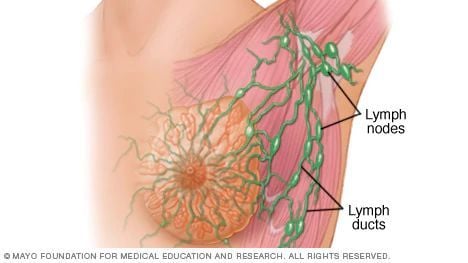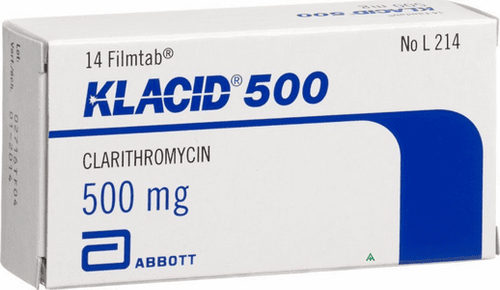Lymph nodes play an important role in fighting infections in the body. Swollen lymph nodes often occur due to infections from bacteria or viruses. Rarely, swollen lymph nodes are caused by cancer. Common areas where swollen lymph nodes can be noticed include the neck, under the chin, armpits, and groin
1. Reasons why lymph nodes become swollen
Lymph nodes are small, round or bean-shaped clusters of cells. Inside the lymph nodes is a combination of different types of immune system cells. These specialized cells filter lymph fluid as it moves through the body and protect the body by destroying invaders.
Lymph nodes are found in clusters, and each group drains a specific area of the body. Swelling can easily be noticed in certain areas, such as the lymph nodes in the neck, under the chin, armpits, and groin. The location of swollen lymph nodes can help identify the underlying cause.
The most common cause of swollen lymph nodes is infection, particularly viral infections like the common cold. Other potential causes of swollen lymph nodes include:
1.1. Common Infections
- Sore throat
- Measles
- Ear infections
- Infections (abscess)
- Mononucleosis
- Skin or wound infections, such as cellulitis
- Human Immunodeficiency Virus (HIV) - the virus that causes AIDS

1.2. Uncommon Infections
- Tuberculosis
- Some sexually transmitted diseases, such as syphilis
- Toxoplasmosis, a parasitic infection from exposure to feces of infected cats or eating undercooked meat
- Cat scratch fever - bacterial infection from a cat scratch or bite
1.3. Immune System Disorders
- Lupus, a chronic inflammatory disease affecting the joints, skin, kidneys, blood cells, heart, and lungs
- Rheumatoid arthritis, a chronic inflammatory disease affecting the tissues along the joints (synovium)
1.4. Cancer
- Lymphoma, cancer that originates in the body’s lymphatic system
- Leukemia, cancer of the body’s blood-forming tissues, including bone marrow and the lymphatic system
- Other cancers that have metastasized to the lymph nodes
Other rare causes include certain medications, such as the anticonvulsant phenytoin (Dilantin) and malaria prevention medications.

2. Common areas where lymph nodes become swollen
Lymph nodes in different parts of the body can swell for different reasons. People often notice swollen lymph nodes in the neck, behind the ears, at the base of the skull (occipital region), under the jaw, above the collarbone, under the armpit, and around the groin.
- Swollen lymph nodes in the neck or under the jaw: This is the most common form. They may indicate an infection around that area, such as a dental infection or abscess, throat infection, viral illness, or upper respiratory infection. Most causes of swollen lymph nodes in this area are benign (non-cancerous), but sometimes swelling of these lymph nodes may suggest a cancer in the head and neck region.
- Swollen lymph nodes behind the ear and in the occipital region (base of the skull): When lymph nodes are swollen in this area, they may correspond to infections around the scalp or could be related to eye infections (conjunctivitis). The most common cause of swollen scalp lymph nodes is scalp conditions, such as dandruff (seborrheic dermatitis), or abscesses or soft tissue infections.
- Lymph nodes in the armpit are important in the anatomy of breast cancer. They are often physically examined in patients being investigated for breast cancer. They also play an important role in staging (determining the extent) and predicting the outcome of breast cancer during the process of removing cancer tissue from the breast. Many cancers, including lymphoma and leukemia, can spread to lymph nodes. (Lymphoma is cancer that originates from the lymph nodes.) These lymph nodes can also become reactive and enlarge due to trauma or infections in the arm on the same side.

- Lymph node enlargement above the collarbone (supraclavicular lymphadenopathy) is always considered abnormal. It often suggests cancer or infection nearby, such as lung infection, lung cancer, lymphoma in the chest cavity, or breast cancer. Sometimes, distant cancers may spread to these lymph nodes, such as cancers of the genital area or colon cancer. Some inflammatory causes of swollen lymph nodes above the collarbone may include tuberculosis or sarcoidosis.
- Swollen lymph nodes in the groin may be normal in young people, but they can also be caused by some sexually transmitted diseases, localized infections, lower limb infections (including foot and toe infections), or genital cancer.
3. Symptoms of swollen lymph nodes
The body’s lymphatic system is a network of organs, vessels, and lymph nodes spread throughout the body. Many lymph nodes are located in the head and neck area. These lymph nodes often swell in this area, as well as in the armpits and groin.
Swollen lymph nodes are a sign that the body is facing an issue. When lymph nodes swell for the first time, you may notice:
- Pain and tenderness in the lymph nodes
- Swelling that may be the size of a pea or kidney bean, or even larger in some lymph nodes
Depending on the cause of swollen lymph nodes, other signs and symptoms may include:
- Runny nose, sore throat, fever, and other signs of upper respiratory infections
- General swelling of lymph nodes throughout the body. When this happens, it may indicate an infection, such as HIV or mononucleosis, or an immune system disorder, such as lupus or rheumatoid arthritis
- Hard, fixed, rapidly growing nodes, which may suggest cancer or lymphoma

- Fever
- Night sweats
Some swollen lymph nodes return to normal, such as with minor infections, and improve. However, if certain abnormal signs appear, you should consult a doctor for timely examination and treatment:
- Swollen lymph nodes appear without a clear cause
- Swelling persists or continues to enlarge over two to four weeks
- Feels hard or soft, or does not move when pushed
- Accompanied by persistent fever, night sweats, or unexplained weight loss
4. Complications of swollen lymph nodes
If an infection is the cause of swollen lymph nodes and is not treated, an abscess may form. An abscess is a localized collection of pus caused by an infection. Pus contains fluid, white blood cells, dead tissue, and bacteria or other affecting agents. An abscess may need to be drained and treated with antibiotics.
In other cases, lymph nodes can become very large and compress nearby structures in the body. This can be a serious problem and require immediate medical or surgical care. For example, lymph nodes in the armpit can compress blood vessels and nerves supplying the arm. Or lymph nodes inside the abdomen may compress the intestines and cause a bowel obstruction.
Monitoring the condition of unusually swollen lymph nodes is important for diagnosis. Hot or swollen lymph nodes may indicate different problems, ranging from mild conditions like a sore throat to serious issues like cancer. For cancer patients, the extent and location of the swelling in the lymph nodes can be used to determine the stage of the disease.

To arrange an appointment, please call HOTLINE or make your reservation directly HERE. You may also download the MyVinmec app to schedule appointments faster and manage your reservations more conveniently.
References: mayoclinic.org, medicinenet.com













